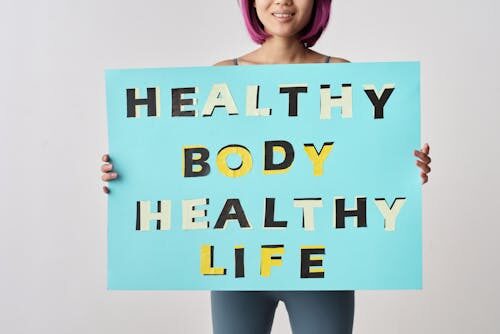Fatigue is a super common feeling, and there are many reasons you might be experiencing it. Here are some of the most common culprits:
- Conquering Constant Fatigue: Unveiling the Culprits and Reclaiming Your Energy
Ever crawl out of bed feeling like you never went to sleep? Do you spend your days dragging through tasks, yearning for that elusive burst of energy? If you’re constantly battling fatigue, you’re not alone. This pervasive feeling is a modern-day epidemic, impacting millions worldwide. But fear not, weary warrior! This guide will shed light on the sneaky culprits behind your fatigue and equip you with powerful strategies to reclaim your energy and conquer the day.
2. The Devious Deceptions of Lifestyle Culprits
Before diving into potential medical causes, let’s explore the most common lifestyle factors that can leave you feeling like a deflated balloon.
- Sleep: The Unsung Hero
We all know sleep is important, but did you know it’s fundamental to our entire well-being? When we skimp on shut-eye, our bodies struggle to repair and recharge. Aim for 7-9 hours of quality sleep each night. Create a relaxing bedtime routine, establish a consistent sleep schedule, and prioritize a sleep-conducive environment.
- Diet: Fueling Your Engine
You wouldn’t put diesel in a Ferrari, so why power your body with sugary snacks and processed junk? A balanced diet rich in fruits, vegetables, whole grains, and lean protein provides sustained energy. Avoid sugary drinks and processed foods that cause blood sugar spikes and crashes, leaving you feeling drained.
- Hydration: The Silent Saboteur
Dehydration can significantly impact your energy levels. Even mild dehydration can lead to fatigue, headaches, and decreased cognitive function. Make water your go-to beverage, and keep a reusable water bottle handy throughout the day.
- Exercise: The Energy Paradox
Though it might seem counterintuitive, regular exercise is a potent weapon against fatigue. Physical activity improves blood flow, oxygen delivery, and circulation, all of which contribute to increased energy levels. Start with moderate exercise like brisk walking or swimming, and gradually increase intensity and duration.
- Stress: The Energy Thief
Chronic stress wreaks havoc on your body, leading to a cascade of negative effects, including fatigue. Practice relaxation techniques like deep breathing, meditation, or yoga to combat stress and promote better sleep.
3. Medical Mischief Makers: When Fatigue Signals Something More
While lifestyle factors are often the culprits behind fatigue, it’s crucial to recognize when it might indicate an underlying medical condition.
- Anemia: This condition occurs when your red blood cells are unable to carry sufficient oxygen throughout the body, leading to fatigue, weakness, and shortness of breath.
- Thyroid Issues: An underactive thyroid (hypothyroidism) can cause fatigue, weight gain, and difficulty concentrating. Conversely, an overactive thyroid (hyperthyroidism) can lead to fatigue, anxiety, and weight loss.
- Sleep Apnea: This common sleep disorder disrupts your breathing throughout the night, leading to fragmented sleep and daytime fatigue.
- Chronic Conditions: Fatigue can be a symptom of various chronic conditions like heart disease, diabetes, and even certain autoimmune diseases.
4. When to Seek Professional Help
If your fatigue is persistent, worsens over time, or is accompanied by other concerning symptoms like unexplained weight loss, fever, or difficulty breathing, consult your doctor. They can perform a thorough evaluation to identify any underlying medical conditions and recommend appropriate treatment.
FAQ:
Q: What’s the difference between tiredness and fatigue?
A: Tiredness is a temporary state caused by exertion or lack of sleep. It usually resolves with rest. Fatigue, on the other hand, is a more persistent feeling of exhaustion that doesn’t necessarily improve with sleep.
Q: I can’t seem to sleep well. Could that be causing my fatigue?
A: Absolutely! Aim for 7-9 hours of quality sleep each night. Create a relaxing bedtime routine, stick to a consistent sleep schedule, and optimize your sleep environment for darkness, coolness, and quiet.
Q: My diet isn’t the best. Could that be a culprit?
A: You bet! Ditch sugary drinks and processed foods. Focus on a balanced diet rich in fruits, vegetables, whole grains, and lean protein for sustained energy.
Q: I forget to drink enough water throughout the day. Could dehydration be a factor?
A: Definitely! Dehydration can significantly zap your energy. Make water your go-to beverage and carry a reusable water bottle with you.
Q: I’m stressed all the time. Could that be impacting my energy levels?
A: Chronic stress is a major energy thief. Practice relaxation techniques like deep breathing, meditation, or yoga to combat stress and promote better sleep.
Q: Should I exercise even though I’m fatigued?
A: Exercise is a powerful tool to combat fatigue! Start with moderate activities like walking or swimming and gradually increase intensity and duration as your energy improves.
Q: When should I see a doctor about my fatigue?
A: If your fatigue is persistent, worsens over time, or is accompanied by other concerning symptoms, consult your doctor. They can rule out any underlying medical conditions.
Q: Are there any vitamins or supplements that can help with fatigue?
A: While some vitamins and minerals like iron, vitamin B12, and magnesium deficiencies can contribute to fatigue, it’s crucial to address the root cause first. Consult your doctor to determine if specific deficiencies are present and if supplementation is necessary.
Q: I have a desk job. Can that contribute to fatigue?
A: Sitting for long periods can lead to fatigue and decreased circulation. Get up and move around every 30 minutes or so. Take short walks, stretch at your desk, or consider a standing desk if possible.
Q: Can medications cause fatigue as a side effect?
A: Absolutely. Certain medications can list fatigue as a potential side effect. If you suspect a medication is contributing to your fatigue, talk to your doctor about possible alternatives.
Q: How much caffeine is too much?
A: While moderate caffeine intake can provide a temporary energy boost, excessive consumption can lead to anxiety, insomnia, and ironically, worsen fatigue in the long run. Aim for no more than 400mg of caffeine daily (roughly 4 cups of brewed coffee).
Q: I have a young child. Is sleep deprivation just something I have to accept?
A: While sleep can be challenging with a little one, prioritize naps or even just quiet breaks when possible. Consider co-sleeping safely if it helps you get more rest. Remember, a well-rested parent is a more patient and effective parent.
Q: What are some good relaxation techniques to combat stress-induced fatigue?
A: Explore options like deep breathing exercises, mindfulness meditation, progressive muscle relaxation, or yoga. Find what works best for you and incorporate it into your daily routine.
Q: How can I create a more sleep-conducive environment?
A: Ensure your bedroom is dark, cool, and quiet. Invest in blackout curtains, a comfortable mattress, and pillows, and keep electronics out of the bedroom. Establish a relaxing bedtime routine that signals to your body it’s time to wind down.
Remember, conquering fatigue is a multi-pronged approach. By addressing lifestyle factors, seeking professional help if needed, and prioritizing your well-being, you can reclaim your energy and live life to the fullest!
-
10 Superfoods for Healthy Eyes That Boost Your Vision
Let’s be honest — we don’t always treat our eyes the way they deserve. From binge-watching late-night shows to scrolling endlessly through social media, our vision takes a lot. The problem? We often forget how crucial eye health really is… until something starts to go wrong. The good news? You don’t need to wait for…
-
Importance of Taking Risks for Success
Let’s face it—taking risks is scary. Whether it’s quitting a job, starting a business, or even just speaking up in a meeting, the idea of stepping outside what’s familiar can feel downright uncomfortable. But here’s the thing: most people who achieve real success didn’t get there by playing it safe. They took leaps. They bet…
-
What to do After Layoff ? | 7 Steps to Bounce Back Stronger and Smarter
Losing your job is one of those moments that just hits differently. It’s not just about the paycheck—it’s about routine, identity, even pride. One minute you’re gearing up for a busy quarter, and the next, you’re trying to figure out what the heck just happened. If you’re sitting there wondering what to do after layoff,…







